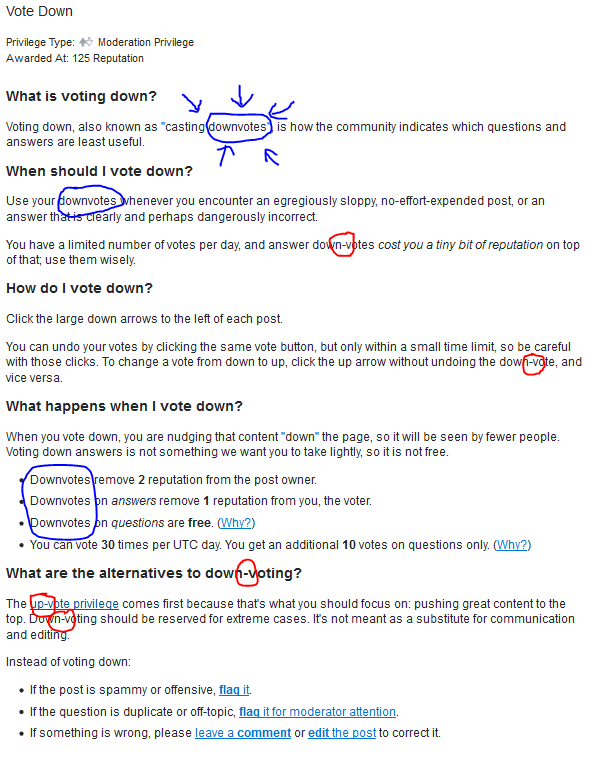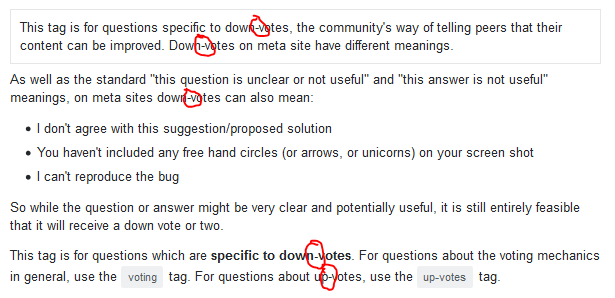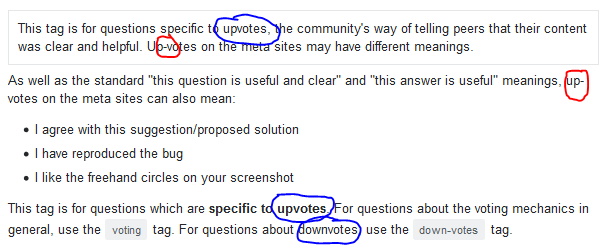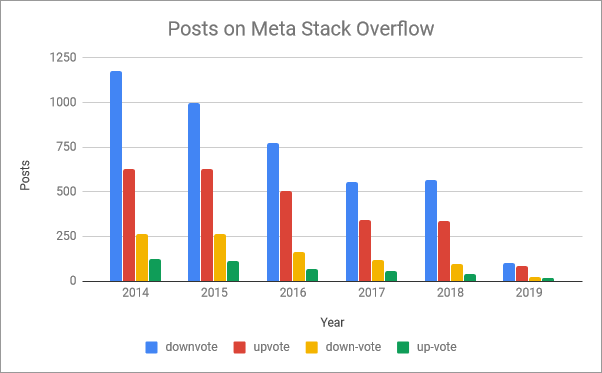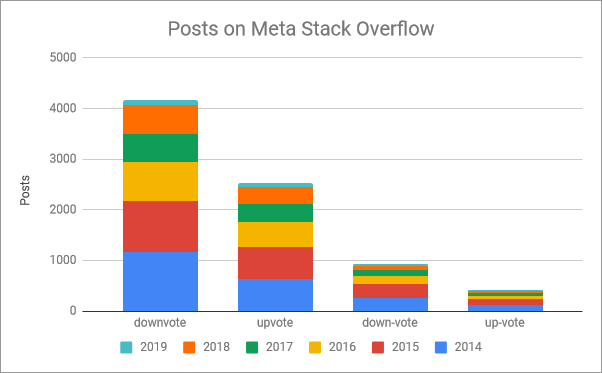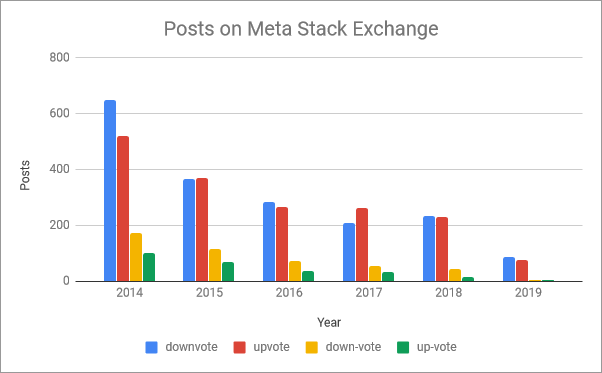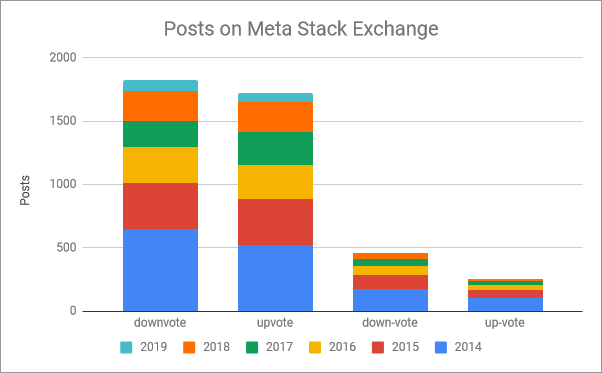tl;dr:
The terms "down-vote" and "up-vote" don't read as naturally as "downvote" and "upvote" respectively – the hyphenated versions are also used far less frequently.
Can we eliminate the usage of "down-vote" and "up-vote" in the FAQ? and rename the down-votes and up-votes tags?
(the tags have now been renamed to downvotes and upvotes — I've removed references to it from the title accordingly.)
The current situation:
The "Vote Down" privilege page in the Help Center uses "down-votes", "down-vote", and "down-voting" twice, but "downvotes" five times:
(This was fixed by edits to the excerpt, to the wiki, and by the renaming of the tag to downvotes)
The tag info for the down-votes tag uses all hyphens:(This was fixed by edits to the excerpt, to the wiki, and by the renaming of the tag to upvotes.)
The tag info for the up-votes tag uses a mix:Searches for "downvote", "upvote", "down-vote", and "up-vote" filtered by the creation date on Meta Stack Overflow show the common usage is unhyphenated:
The same pattern is seen on meta.stackexchange too:
Justification:
I've done some research, and the following all point towards using "downvote" and "upvote" - both as the verb:
I downvoted because your answer burnt my house down.
and as the noun:
My downvote will not be retracted until I get my unicorn back.
Download/upload are linguistically similar words - most of us wouldn't dream of putting a hyphen in, e.g.:
I'll down-load that file when I get home to my ISDN connection.
or:
My up-load is a dossier of pluralisation problems.
so I've included them in my searches.
Oxford Dictionaries has entries for downvote and upvote, download, and upload but searches for the hyphenated words point to the non-hyphenated words.
Cambridge Dictionary has entries for "vote {} up or down", download, and upload but nothing for "downvote", "upvote", "down-vote", or "down-vote".
Collins Dictionary has entries for downvote, upvote, download, and upload. A search for "down-vote" redirects to vote down; searches for the other words hyphenated don't give relevant results.
Merriam-Webster do not have pages for upvote/downvote (hyphenated or otherwise) but do have download and upload. Searches for "down-load" and "up-load" redirect to the unhyphenated versions.
The accepted answer to “Upvote” vs. “up vote” vs. “up-vote” by Karl (whose profile says that they are an "EFL Teacher and Teacher Trainer") on the English Language & Usage Stack Exchange says:
Within the nomenclature of this site, upvote seems to be the accepted term.
The "Vote Up" privilege page in the Help Center uses neither "up-vote", "down-vote", nor any variant — but does use "upvote" twice, "upvotes" three times, and "upvoted" once.
We have the tactical-downvoting and downvote-reason tags whose excerpt and wikis use the non-hyphenated versions exclusively.
Jeff Atwood and Joel Spolsky (the founders of Stack Overflow) use "downvote" and "upvote" rather than "down-vote" or "up-vote", e.g. JA-1, JA-2, JS-1, JS-2.
The Oxford Dictionaries page for Hyphen (-) says (emphasis mine):
Hyphens joining prefixes to other words
Hyphens can be used to join a prefix to another word, especially if the prefix ends in a vowel and the other word also begins with one (e.g. pre-eminent or co-own). This use is less common than it used to be, though, and one-word forms are becoming more usual (e.g. prearrange or cooperate).
What I'd like to happen:
Ideally:
(This has been fixed by tag renames - see above.)
Questions with down-votes and up-votes would be retagged to downvotes and upvotes which don't exist (yet).(This has been fixed by the creation of tag synonyms - see above.)
down-votes and up-votes become tag synonyms for downvotes and upvotes.(This has been fixed by edits - see above.)
The tag excerpts and wikis for the new tags would be modified to use "downvote" and "upvote" (and variants like "upvoted", "downvotes") exclusively.The Help Center pages are modified to use the unhyphenated words.
Everybody stops using "down-vote" and "up-vote" and variants in favour of "downvote" and "upvote". (I accept this is probably wishful thinking.)
